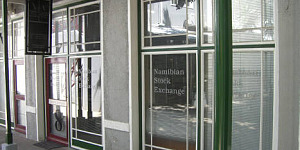NAMIBIAN and international investors will soon have the chance to invest in a diversified portfolio of Namibian government bonds in a highly cost-effective manner.
This will be done through what is called a bonds exchange traded fund (ETF) – where the fund holds a set of bonds determined by a set of rules, which bonds are changed and updated based on these rules over time.
Thus, while the bonds held by the fund change and mature, the fund itself does not. In addition, the structure creates liquidity for investors, and investors' coupons from their holdings will be automatically re-invested.
An ETF is formed out of a basket of assets, which can take various forms, from shares of different companies on a stock exchange, (overall or representing a certain industry,), bonds, currencies, commodities to a combination of the aforementioned.
Tracked through an index, investors receive a return on the movement of such indices. While the investor does not actually own the underlying assets, the fund must own such, and should the investor ever want to convert their holding in the ETF for the underlying asset, they would be able to do so.
While the Namibian Stock Exchange (NSX) has a healthy operating ETF board, there is currently no such a fund traded for bonds – or Namibian bonds alone, on the NSX.
However, on the Johannesburg Stock Exchange, there are a number of listed ETFs, including a virtually identical South African government bond ETF.







































